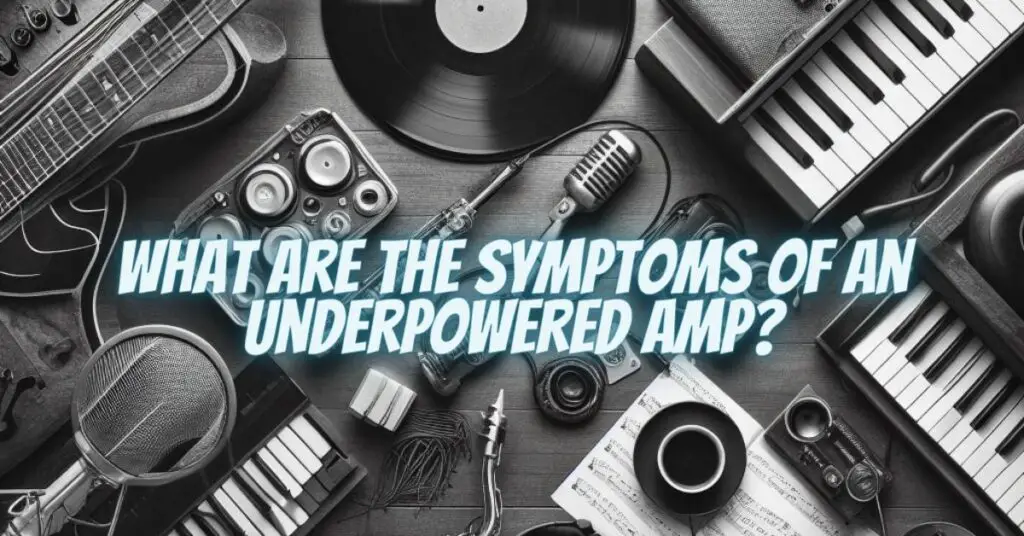The symptoms of an underpowered amp can vary depending on the specific amp and speakers being used. However, there are some common symptoms that can indicate that an amp is underpowered.
Distortion
One of the most common symptoms of an underpowered amp is distortion. Distortion is a harsh, buzzing sound that occurs when the amp is trying to produce more power than it is capable of. Distortion is most noticeable at high volumes, but it can also occur at lower volumes if the amp is being pushed too hard.
Clipping
Clipping is another common symptom of an underpowered amp. Clipping is a type of distortion that occurs when the amp’s output signal is clipped off. Clipping can cause the sound to sound harsh and unnatural. Clipping can also damage your speakers, so it is important to avoid it.
Low volume
Another symptom of an underpowered amp is low volume. If an amp is underpowered, it will not be able to produce enough power to drive your speakers to the desired volume. This is especially noticeable if you are using large or inefficient speakers.
Reduced dynamic range
An underpowered amp can also reduce the dynamic range of your music. Dynamic range is the difference between the loudest and softest sounds in a piece of music. An underpowered amp may not be able to produce the loudest sounds in a piece of music, which can reduce the overall dynamic range.
Overheating
An underpowered amp may also overheat if it is being pushed too hard. Overheating can damage the amp, so it is important to avoid it.
If you are experiencing any of the symptoms listed above, it is possible that your amp is underpowered. To confirm this, you can try using a more powerful amp with your speakers. If the sound quality improves, then your original amp was probably underpowered.
Here are some tips to avoid underpowering your amp:
- Choose an amp that is powerful enough for your speakers. The amp’s power output should be equal to or greater than the speakers’ power handling capacity.
- Avoid using the amp at high volumes for extended periods of time. If you need to play your music at high volumes, use a more powerful amp.
- Keep the amp well-ventilated. Overheating can damage the amp, so it is important to keep it cool.
- If you are unsure whether or not your amp is powerful enough for your speakers, consult with a qualified audio dealer.
An underpowered amp can cause a number of problems, including distortion, clipping, low volume, reduced dynamic range, and overheating. If you are experiencing any of these symptoms, it is possible that your amp is underpowered. To confirm this, you can try using a more powerful amp with your speakers. If the sound quality improves, then your original amp was probably underpowered.
To avoid underpowering your amp, choose an amp that is powerful enough for your speakers, avoid using the amp at high volumes for extended periods of time, keep the amp well-ventilated, and consult with a qualified audio dealer if you are unsure whether or not your amp is powerful enough for your speakers.


